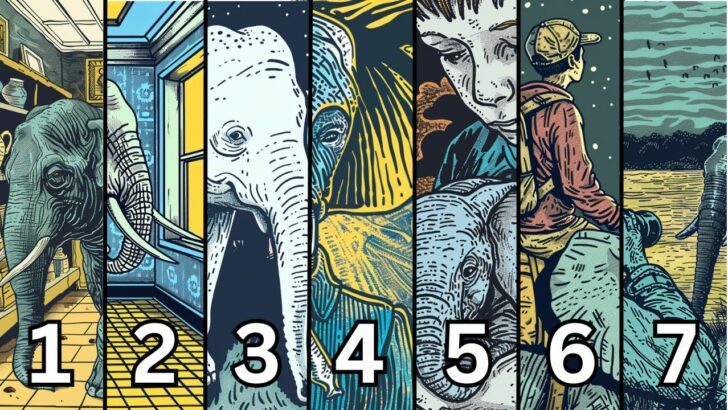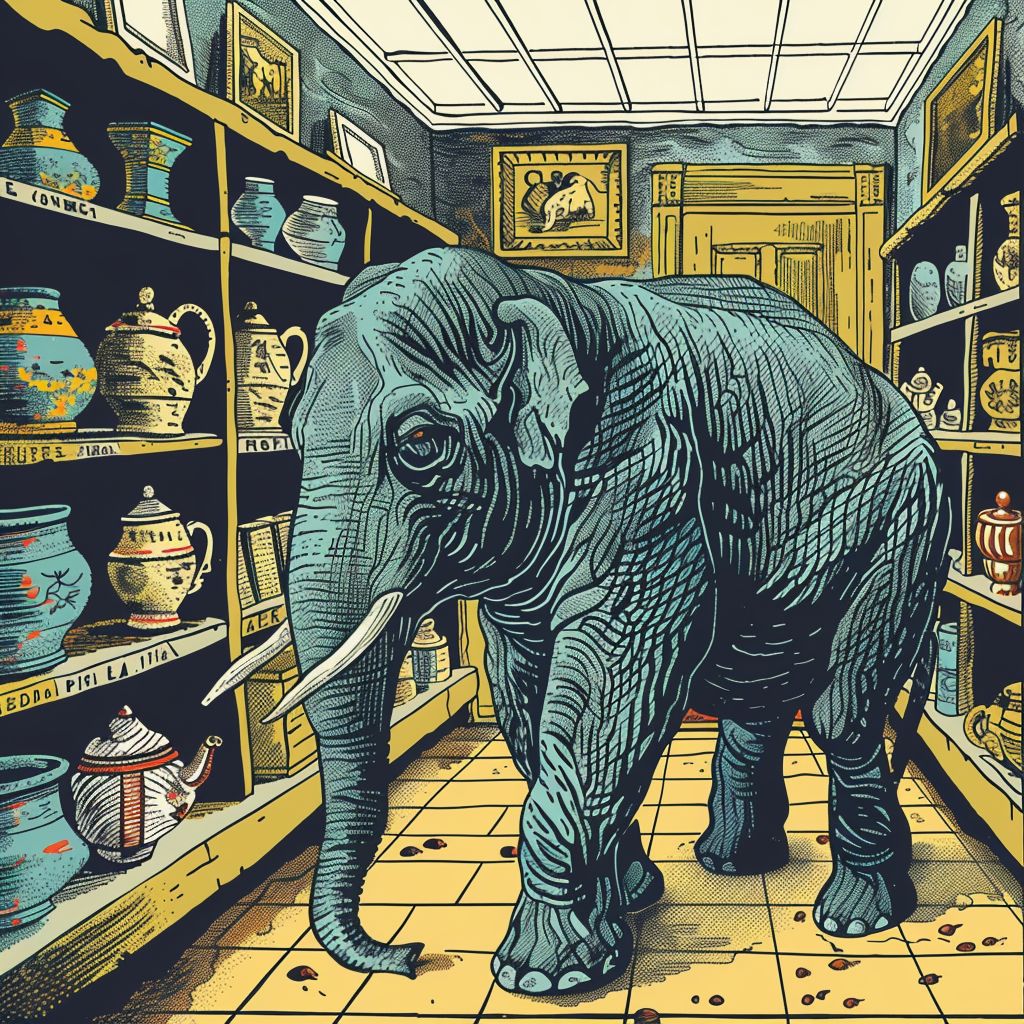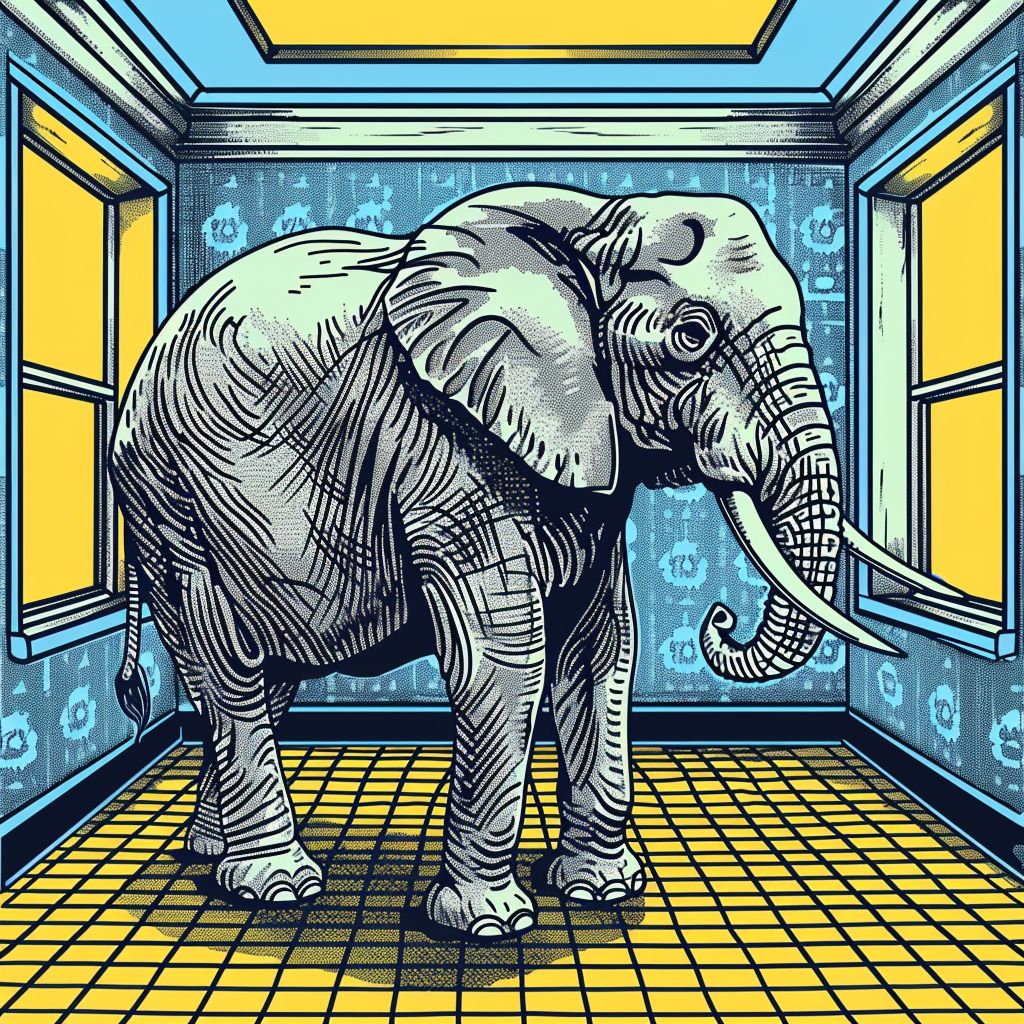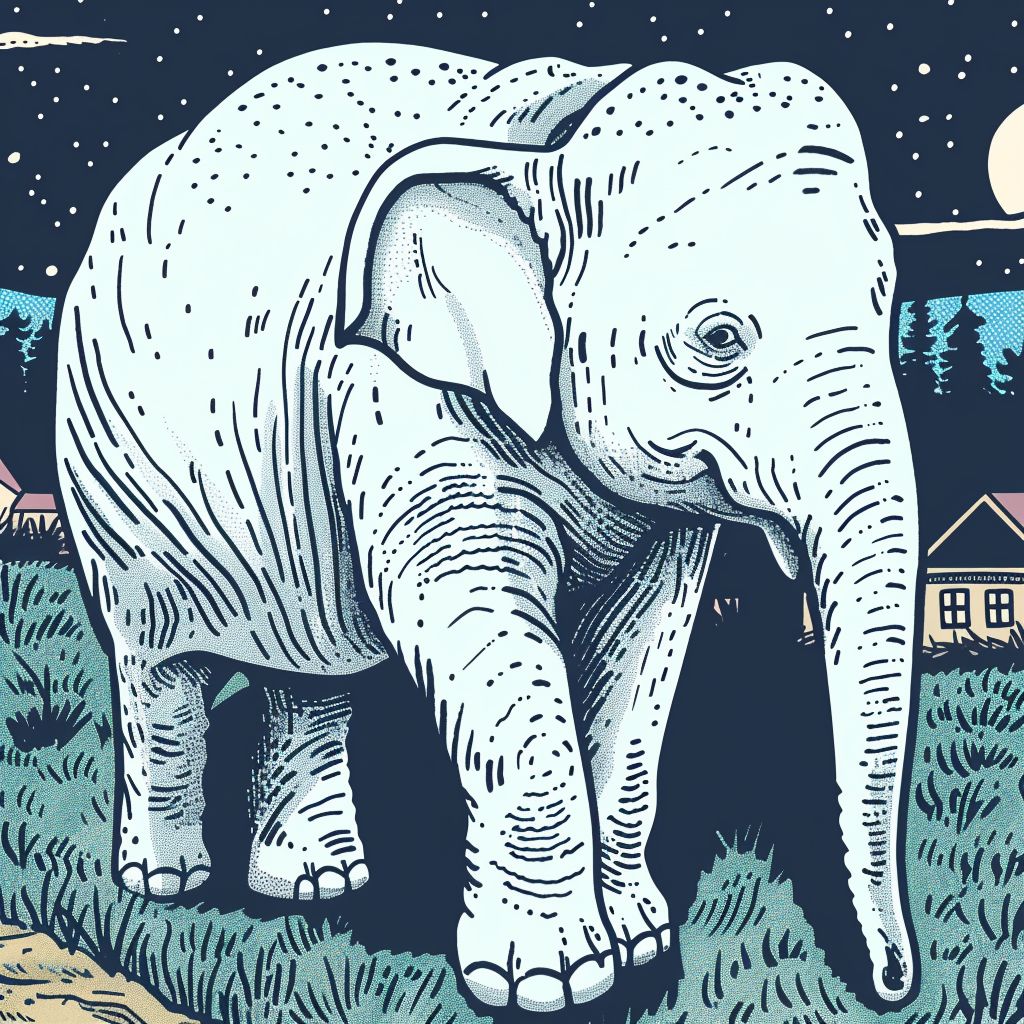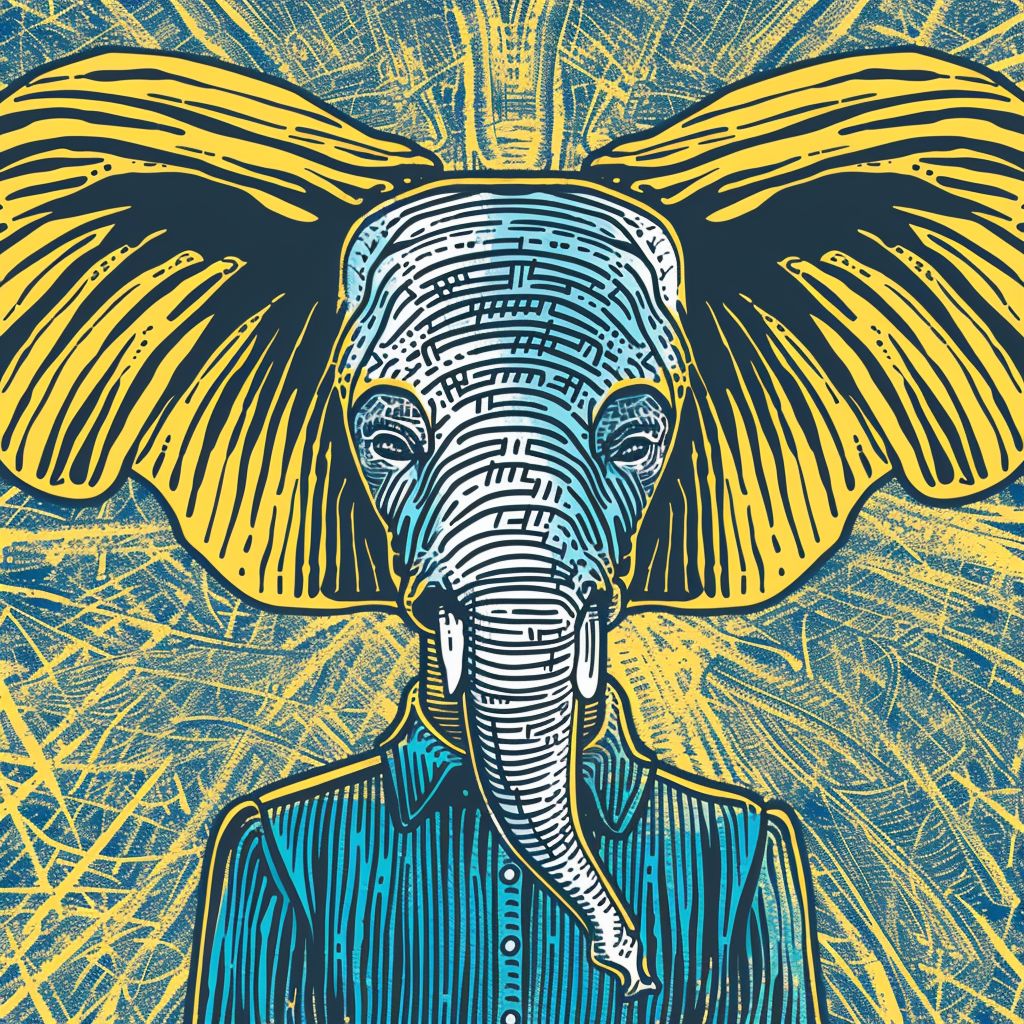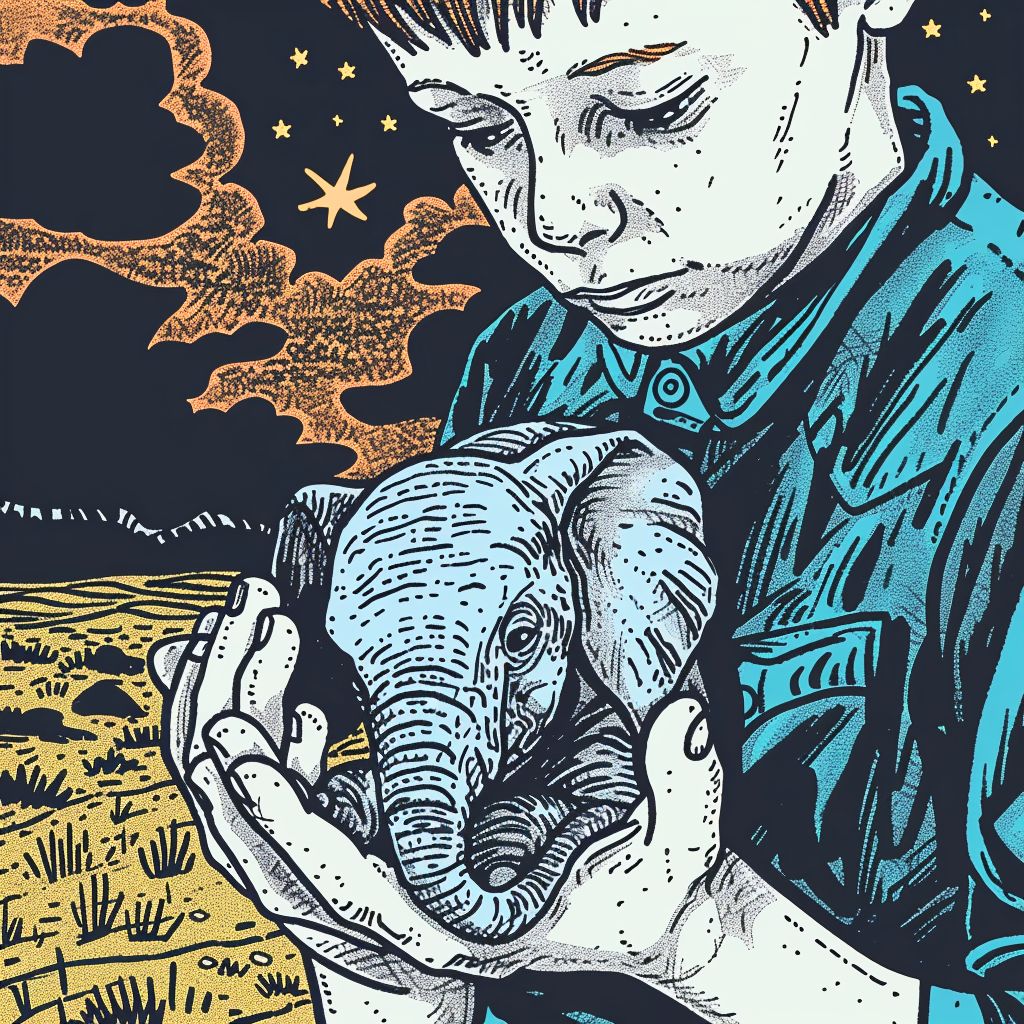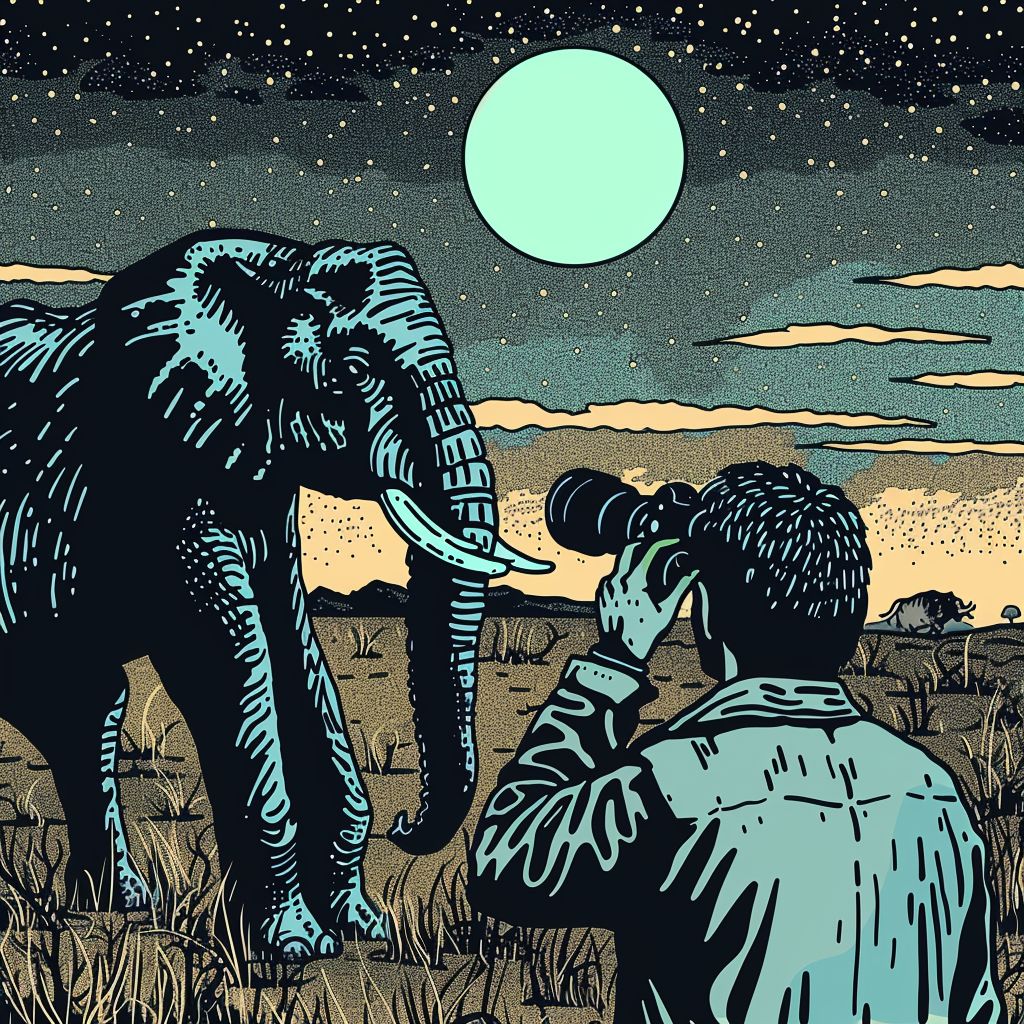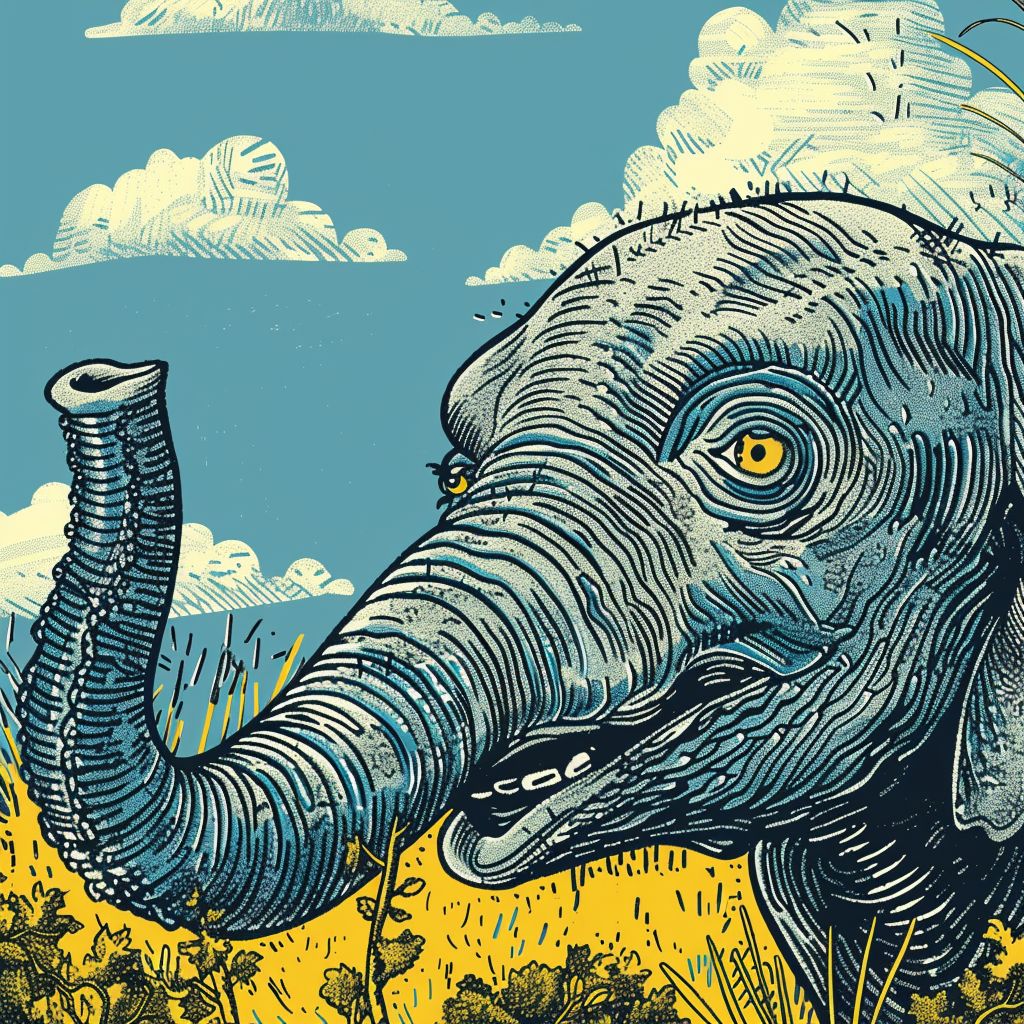With their majestic presence and gentle demeanor, elephants have wandered into the expanse of our language, inspiring idioms that reflect their size, memory, and the emotional depth associated with them.
Renowned for their intelligence, social complexity, and unforgettable memories, elephants lend their characteristics to expressions that speak to human experiences of awareness, burdensomeness, and wisdom.
Here’s a compilation of 7 elephant idioms that explore the elephantine impact on our conversations, shedding light on human behaviors and the psychological landscapes we navigate.
1. Like an Elephant in a China Shop
The idiom “like an elephant in a china shop” vividly describes clumsiness or the potential for havoc when finesse or delicate handling is required.
It draws upon the image of a large, unwieldy elephant navigating through a space filled with fragile items, symbolizing a lack of awareness or subtlety in sensitive situations.
- Example 1: He approached the negotiation like an elephant in a china shop, upsetting the other party before discussions could even begin.
- Example 2: Inviting her outspoken uncle to the wedding was like bringing an elephant into a china shop; tact was not his strong suit.
2. Elephant in the Room
“Elephant in the Room” refers to a significant, undeniable issue that everyone is aware of but chooses to ignore.
This idiom highlights human tendencies to avoid uncomfortable truths or problems, likening the ignored issue to an elephant whose presence is impossible to overlook yet is deliberately unaddressed.
- Example 1: The team’s dwindling morale was the elephant in the room during the meeting, with everyone avoiding the topic.
- Example 2: At family dinners, the recent divorce became the elephant in the room, with conversations carefully steering clear of any mention.
3. White Elephant
A “White Elephant” symbolizes an unwanted or burdensome possession that is difficult or costly to maintain. Originating from the historical gift of a rare white elephant, which was considered prestigious but financially ruinous to keep, this idiom explores the irony of owning something supposedly valuable that ends up being a liability.
- Example 1: The luxury car, a gift from her father, turned into a white elephant, draining her savings with its maintenance.
- Example 2: The sprawling mansion became a white elephant for the couple, as they struggled to manage its upkeep.
4. Elephant Ears
“Elephant Ears” describes someone with an acute ability to hear or eavesdrop, drawing on an elephant’s large, sensitive ears.
This idiom playfully acknowledges the human curiosity and our sometimes nosy nature, capable of picking up whispers and secrets like an elephant discerning sounds over great distances.
- Example 1: You can’t whisper anything in this office without someone with elephant ears overhearing.
- Example 2: My grandmother has elephant ears; she knows everything happening in the neighborhood.
5. To Have an Elephant on One’s Hands
To “Have an Elephant on One’s Hands” means dealing with a significant problem or challenge that is difficult to manage.
This expression conveys the enormity and complexity of a situation, likening it to the formidable task of caring for an elephant, symbolizing how some issues can feel overwhelming and cumbersome.
- Example 1: After the company merger, the CEO found he had an elephant on his hands, trying to blend two distinct corporate cultures.
- Example 2: Organizing the charity event turned into having an elephant on her hands, with unforeseen obstacles at every turn.
6. Riding the Elephant
“Riding the Elephant” refers to taking on a large or challenging task, embodying courage and determination.
It suggests an undertaking of significant magnitude, where the individual must navigate a situation as daunting as directing an elephant, emphasizing the boldness required to steer through difficult scenarios.
- Example 1: He was riding the elephant when he took over the failing company, determined to turn it around.
- Example 2: Launching the new initiative felt like riding the elephant, with every step requiring careful thought and bold action.
7. Seeing an Elephant
“Seeing an Elephant” denotes experiencing something significant or monumental for the first time, often with an element of shock or awe.
This idiom captures the profound impact of encountering the unfamiliar, much like the astonishment and wonder one might feel upon seeing an elephant for the first time.
- Example 1: Joining the circus, she finally saw an elephant, literally and metaphorically, as she adapted to its eclectic lifestyle.
- Example 2: Moving to the big city was like seeing an elephant for him, a country boy encountering the hustle and bustle for the first time.
Trunkfuls of Wisdom: Unpacking the World of Elephant Idioms

Hey fellow Linguaholics! It’s me, Marcel. I am the proud owner of linguaholic.com. Languages have always been my passion and I have studied Linguistics, Computational Linguistics and Sinology at the University of Zurich. It is my utmost pleasure to share with all of you guys what I know about languages and linguistics in general.

